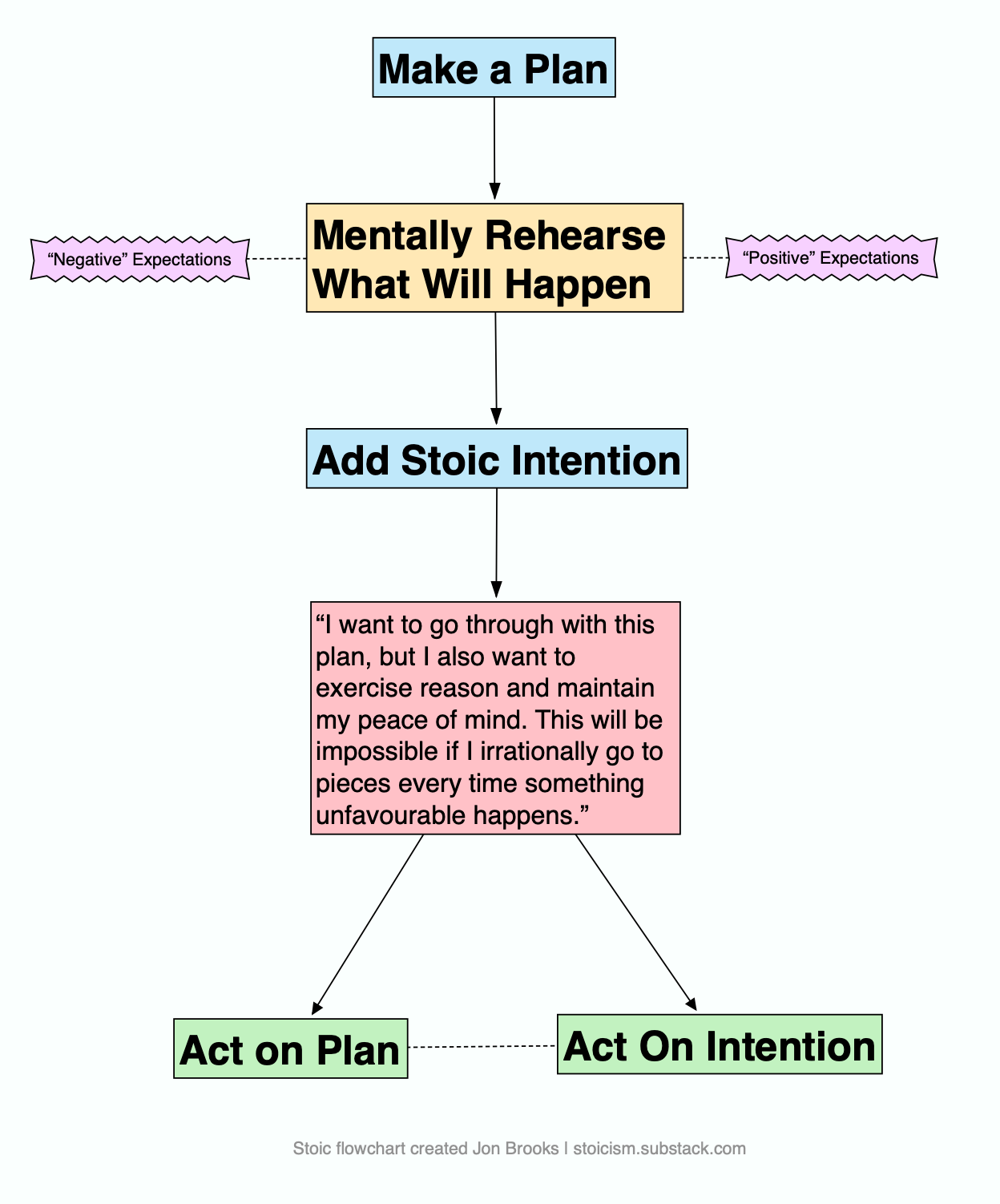In today's Stoicism article, we'll decode Chapter 4 from Epictetus' handbook.
Epictetus saw that we become frustrated and angry when our expectations about the world clash with reality.
If you practice the exercise Epictetus lays out below, you will be protected from ever having a bad day or becoming disappointed when your expectations are not met.
Here is the quote by Epictetus that explains the process:
Whenever planning an action, mentally rehearse what the plan entails. If you are heading out to bathe, picture to yourself the typical scene at the bathhouse – people splashing, pushing, yelling and pinching your clothes. You will complete the act with more composure if you say at the outset, ‘I want a bath, but at the same time I want to keep my will aligned with nature.’ Do it with every act. That way if something occurs to spoil your bath, you will have ready the thought, ‘Well, this was not my only intention, I also meant to keep my will in line with nature – which is impossible if I go all to pieces whenever anything bad happens.
If you break down the ideas here, you will find three specific steps.
I/ Rehearse Your Plan
When you plan to do something, before doing it, mentally rehearse what will happen. The key to managing your expectations is to get an overview of what the future may contain.
Pay particular attention to the things that may threaten to disturb your peace of mind.
Here are some examples:
I plan to go to work.
- The bus to work may be crowded and smell bad.
- I may not have a seat.
- When I get to work, I may arrive late and receive a comment from my boss.
- At work, people will try to make me gossip with them.
- I will experience distraction and boredom when performing my tasks.
I plan to go to the gym.
- At the gym, it may be busy and I may not be able to use the machines I would have liked to use.
- There may be aggressive people walking up and down the gym puffing their chest out.
- There will be people who don’t tidy up after themselves.
- There may be people who try to make me rush using the machines I’m on.
I plan to have a date with my partner.
- My partner may make a bad joke or inappropriate comment.
- They may not listen to everything I say.
- They might bring up something from the past that provokes an argument.
- The food might take a while to come.
- I may be disappointed by the expense of the bill.
II/ Add Stoic Intention
After you have rehearsed the plan, say the following instruction to yourself:
I want to go through with this plan, but I also want to exercise reason and maintain my peace of mind. This will be impossible if I irrationally go to pieces every time something “unfavourable” happens.
III/ Make Stoic Intention Part of the Plan
So we always have two goals:
- Follow the plan
- Practice wisdom while following the plan
If we want to learn how to manage our expectations, we should contemplate realistic outcomes about the frustrating elements of the activity we plan to do, so that way we will be prepared to meet that frustration with tranquility.

